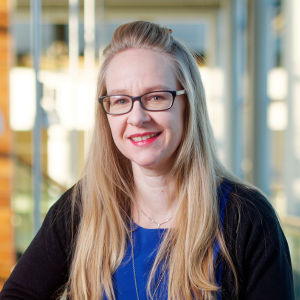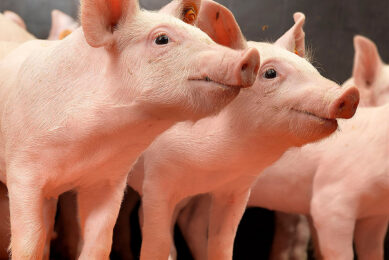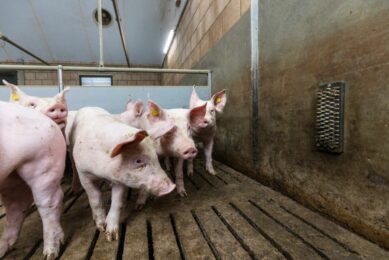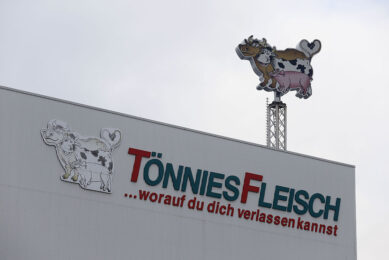Wrapping up August: What’s new in the world of pigs?

As Covid-19 continues to be a problem, the number of announced online webinar series is growing as well. Trouw Nutrition as well as Jyga Technologies announced a series of webinars with technical content. Plus: baby news from China! Read it all in the August Business Update.
First piglet born from sows sent to China
Danish Genetics, through their partner Breeders of Denmark, delivered a number of breeding pigs to China earlier this year. The companies proudly published an image of the very first-born piglet, who, according to Breeders of Denmark, “is healthy and vigorous, just like his 18 brothers and sisters.”
Tonisity breaks ground in China
Animal health and nutrition company, Tonisity International, announces Tonisity China, a new joint venture in China with Impact Asia, an investment firm based in Hong Kong. Tonisity China is exclusively responsible for Tonisity’s range of animal health and nutrition products, particularly in young pigs. The company is focused on developing supplementary nutritional products that create physiological changes in the gut of young animals.
Trouw Nutrition launches “learn on demand” webinars
Trouw Nutrition launches a series of real-time and on-demand research chats. Free-of-charge and open to stakeholders throughout the animal industry, the content focuses on emerging research that impacts animal health and performance on commercial farms and in feed mills worldwide. The webinars share how research findings can support feed, farm and health management strategies. One of the topics to be discussed on 8 October is copper. Registration is possible here.
Jyga: A month of knowledge sharing
Canada’s Jyga Technologies, known from the Gestal sow management programme, is launching a webinar series throughout September, called ‘Swine Summit’. In 4 episodes, one every week, the topics ‘gilt development’, ‘labour management’, ‘precision feeding’ and ‘research farms’ shall be touched on. The different presentations will be held in cooperation with companies Zinpro, Ro-Main, Demeter/Nutrition Athena and CIPQ. Attendance is free, registration is possible here.
Innovators set on transforming the livestock industry
How are animal health, nutrition and precision farming emerging from the current crisis and how can we create a more connected future for the livestock industry? To answer these questions, 10 international animal agtech start-ups will pitch their innovative technologies at the virtual Animal AgTech Innovation Summit on 14 September. The categories for the event are precision livestock farming, aquaculture, animal health, and the microbiome and feed.
New pig house cooling concept from Inno+
Inno+, a specialist in conditioning incoming air for pig stables, has developed a new cooling concept specifically for the cooling of farrowing and breeding stables. This “airco” solution takes care of cooling and dehumidifying incoming air in stables, with the outside temperature always cooled down to 18°C. Over the past 2 years, there have been about 2,000 hours per year where the outside temperature was above 18°C.

VetMax ASF PCR test registered with OIE
The World Organization for Animal Health (OIE) has approved the registration of the Applied Biosystems VetMax ASF virus detection kit from Thermo Fisher Scientific in the OIE manual of diagnostic testing. This kit has been validated for the detection of the ASF virus from blood, serum and tissues of pigs and wild pigs, and can detect all ASF virus genotypes currently known. PCR-based testing identifies the virus by detecting its DNA, rather than antibodies generated against the virus.
The Maschhoffs offers Acuity swine genetics to market
After more than 15 years of development, US-based swine producer The Maschhoffs will offer its proprietary swine genetics via a new standalone business, called Acuity. It which will provide a number of genetic resources, including the Acuity Duroc.
Hostazym X improves nutrient digestibility in lactating sows
A digestibility trial conducted at the Flemish Research Institute for Agriculture, Fisheries and Food (ILVO), Belgium, demonstrated that Huvepharma’s product Hostazym X can improve nutrient digestibility. The trial concluded that including the product in the diet of lactating sows at 1,500 EPU/kg significantly increases the nutrient digestibility of the feed, especially hemicellulose and NSPs, and supports sow zootechnical performance resulting in better body condition (less weight loss).

BaF to produce and sell Genesus in Vietnam
Vietnamese company BaF, a member of the Tan Long Group, has formed a strategic partnership with Genesus to supply purebred breeders. BaF aims to have 100,000 parent stock sows, 2,400 great grandparents sows, and 8,700 grandparent sows by 2023, and 261,900 parent stock sows, 2,400 grandparents, and 10,000 grandparent herds by 2030. Genesus states it has largest independent registered purebred swine herd in the world.

Distrivet and Bioiberica partner in Spain
Bioiberica Animal Nutrition has partnered with Distrivet for the exclusive distribution of its Nucleoforce range to develop the market for nucleotides for animal nutrition in Spain. Nucleoforce is a balanced concentrate of free nucleotides and active precursors obtained from yeast extracts, and has been designed to meet the needs of production animals, providing the nutrients necessary for the proper development of their immune and digestive systems.
Crespel & Deiters launches wheat-based livestock feed
Following a restructuring of its product portfolio, the Crespel & Deiters Group has introduced Crespeo, a division for farm animal feed. Crespeo’s Crespovit range focuses on applications for the feed market. All products are designed to meet the nutritional needs of animals and come from GMO-free EU cultivation. As a highly digestible source of protein and carbohydrates, wheat offers ideal nutritional value, but also provides functional benefits to optimise stability, texture and taste.

Elanco closes acquisition of Bayer Animal Health
Elanco Animal Health has closed the acquisition of Bayer Animal Health with the transaction valued at US$ 6.89 billion. The purchase expands Elanco’s portfolio to provide farmers, pet owners, and veterinarians more comprehensive animal health solutions. Furthermore, the combined company brings together complementary farm animal portfolios.
CPF: zero food loss and food waste in 2030
Charoen Pokphand Foods announced its Food Loss & Food Waste Policy, with a goal to achieve zero food losses and food waste in the production line and supply chain in 2030. Under the policy, CPF commits to supporting the UN’s Sustainable Development goal 12: Responsible consumption and production. While goal 12 sets to halve per capita global food waste at the retail and consumer levels by 2030, CPF aims for zero food loss in the production line and food waste throughout the supply chain in Thailand.
 Beheer
Beheer








 WP Admin
WP Admin  Bewerk bericht
Bewerk bericht